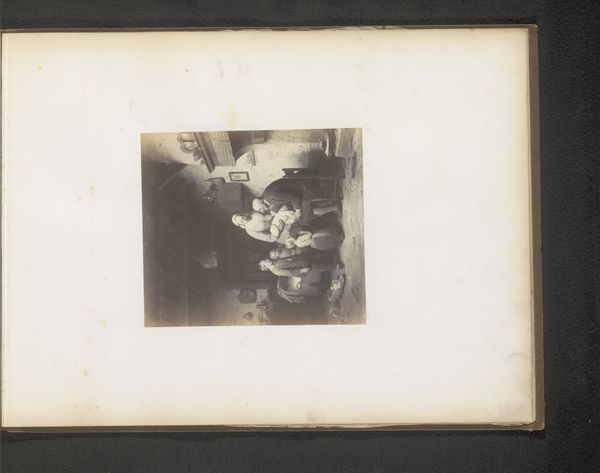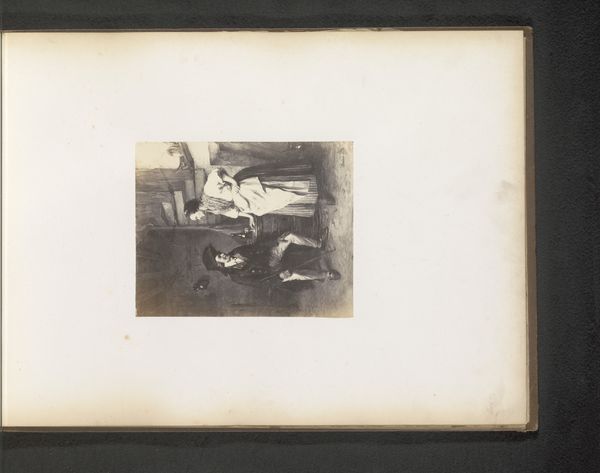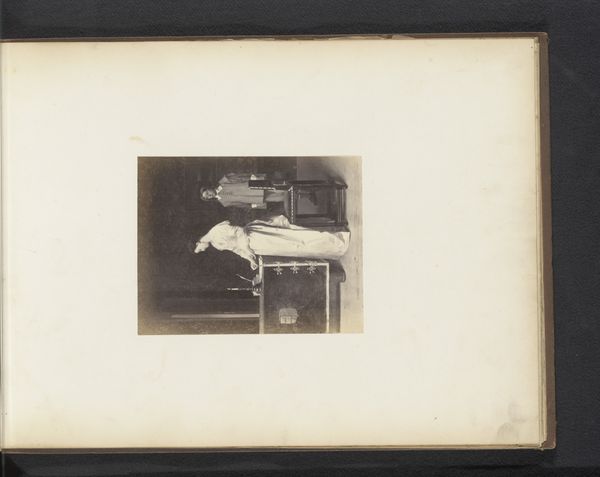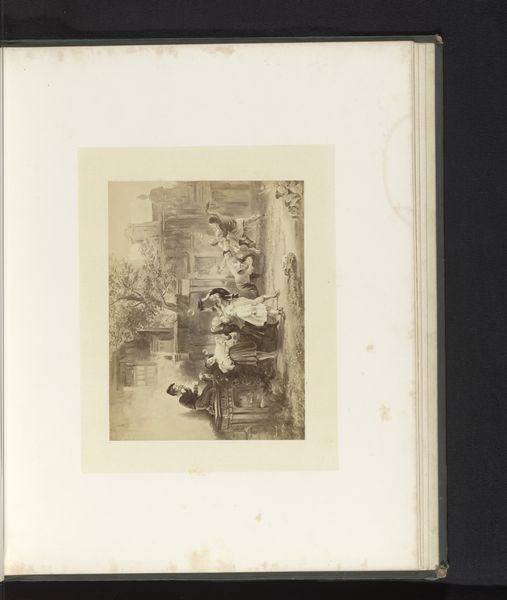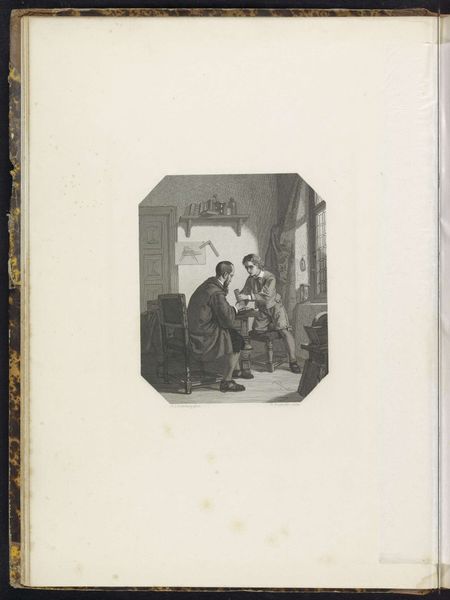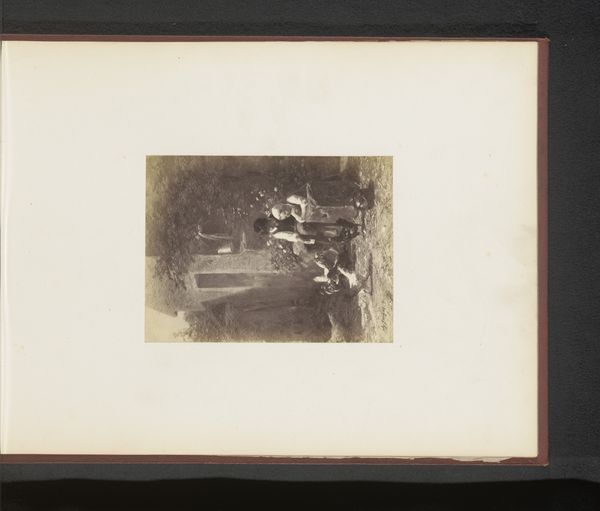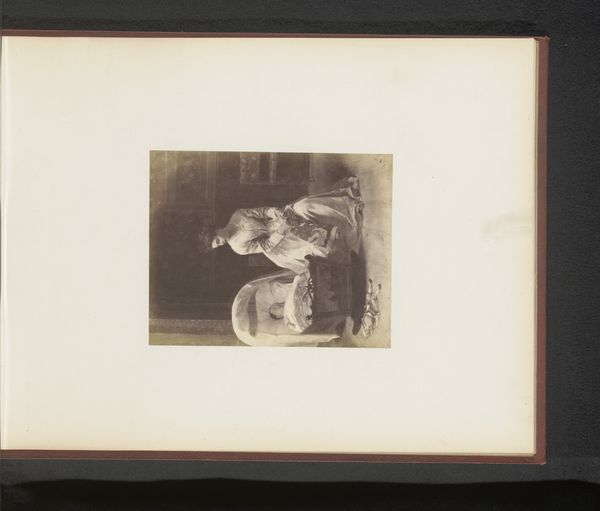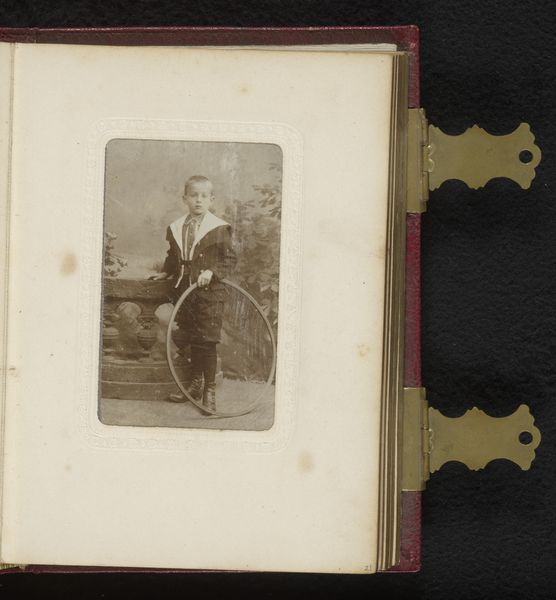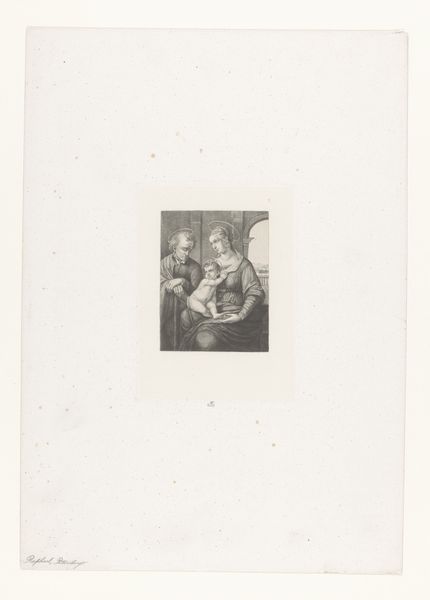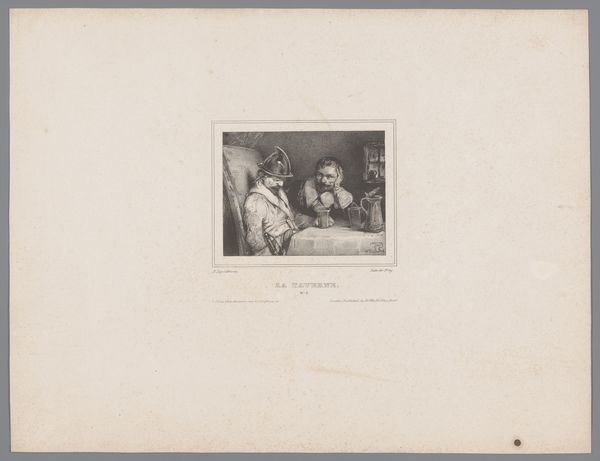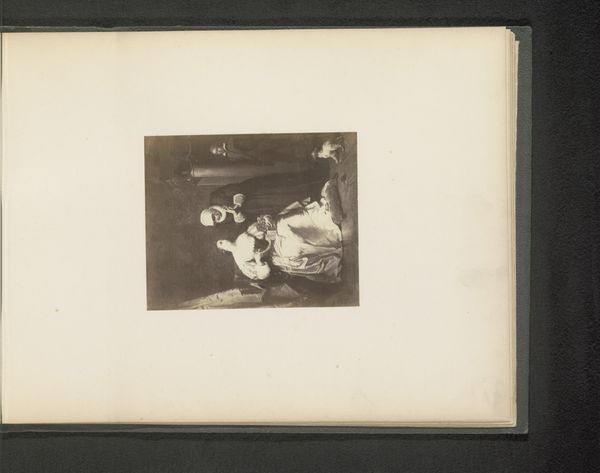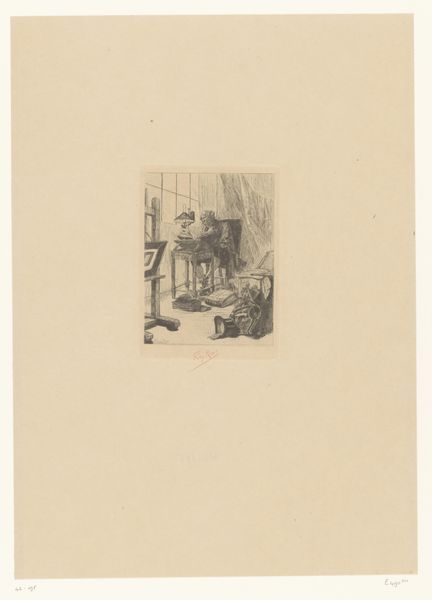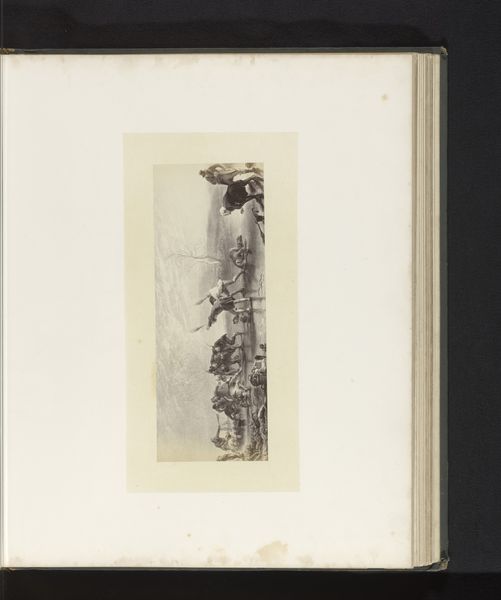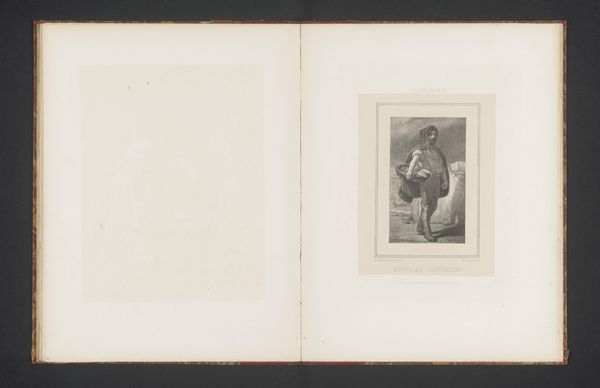
photography
#
portrait
#
aged paper
#
toned paper
#
homemade paper
#
ink paper printed
#
sketch book
#
photography
#
personal sketchbook
#
ink colored
#
pen and pencil
#
sketchbook drawing
#
sketchbook art
#
realism
Dimensions: height 115 mm, width 92 mm
Copyright: Rijks Museum: Open Domain
Curator: We're looking at "Portret van een onbekende vrouw in bruidsjurk," which translates to "Portrait of an unknown woman in a wedding dress," a photograph taken sometime before 1893. It resides within what appears to be a personal sketchbook. Editor: My first impression is the stark contrast between the figure and the medium, particularly the visible, textured paper. The grainy texture imbues the portrait with a solemnity, as though it has witnessed time's passage. Curator: Precisely. Observe how the tonality of the photograph itself plays with the aged quality of the paper. The subject is rendered in sharp focus against a rustic backdrop, lending a distinctive visual weight to her figure. Note the strategic employment of chiaroscuro, subtly dramatizing her countenance. Editor: From my perspective, the material elements heighten its significance. Considering the homemade paper and possible ink printing, this work prompts questions regarding production and circulation within intimate circles, contrasting to industrialized practices. Who created this image and for what purpose? What materials were accessible to them, and what conditions shaped the availability of photographic practices during that time? Curator: Indeed, those questions of context provide enriching angles. If we turn back to composition, notice the frontal pose and direct gaze; they grant the subject both presence and vulnerability. Her formal attire, a stark juxtaposition against the primitive background, speaks volumes, evoking a unique intersection of societal expectations and personal identity. Editor: It's fascinating to speculate about her role. The integration within the sketchbook format is quite intriguing. It evokes notions of collecting, memory-making, and personal visual narratives rather than solely focusing on traditional exhibition frameworks or commercial aims. It invites considerations regarding class, access, and evolving material practices around personal photography in the late 19th century. Curator: Reflecting on this piece, the nuanced layering of form and technique lends itself to endless reinterpretations and invites the audience to actively engage with a visual narrative seemingly suspended in time. Editor: Agreed. Engaging with it via materiality and its making fosters understanding of its place within an economy of materials, means of production, and ever-shifting notions of personal visual economies.
Comments
No comments
Be the first to comment and join the conversation on the ultimate creative platform.
